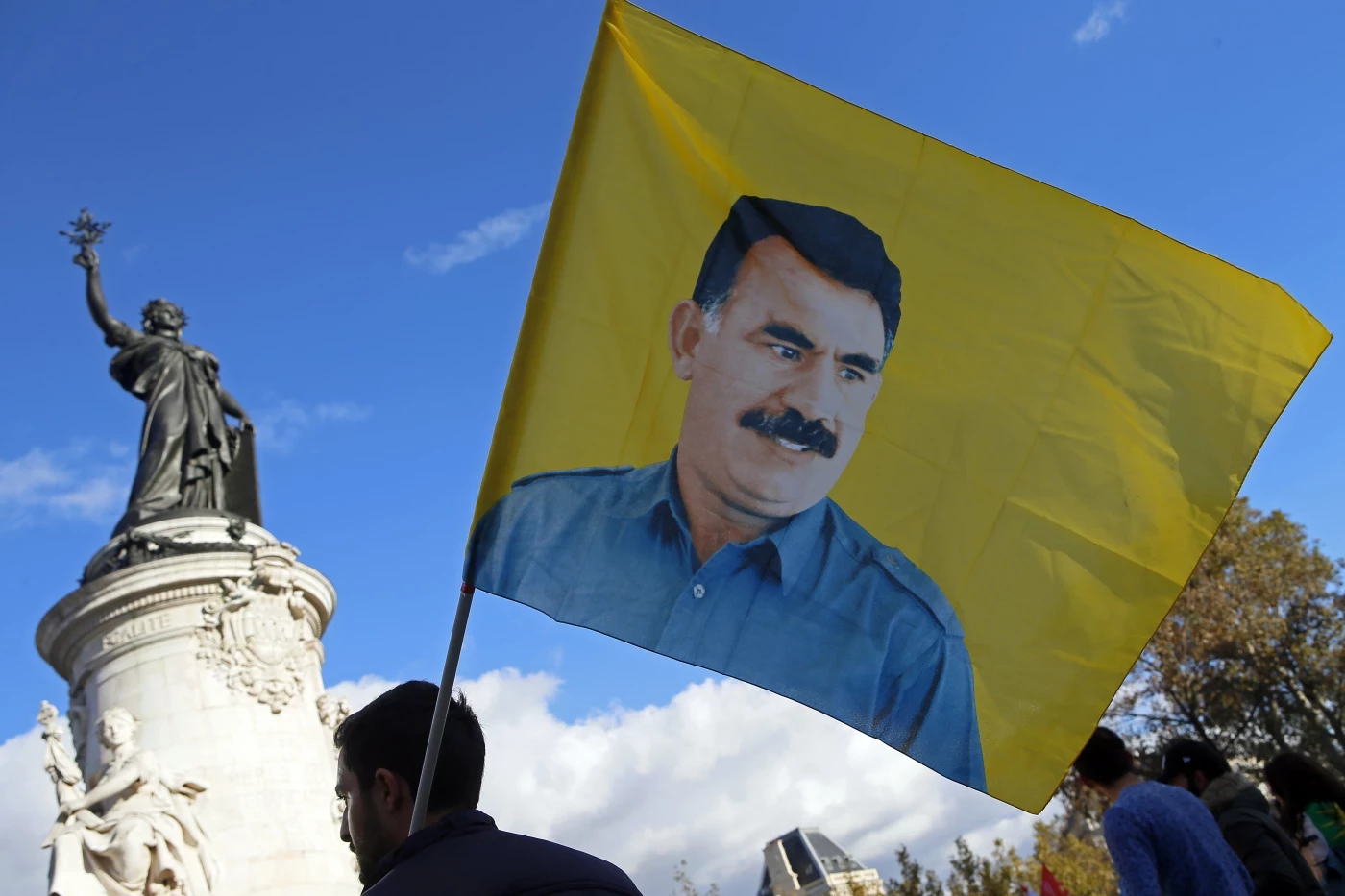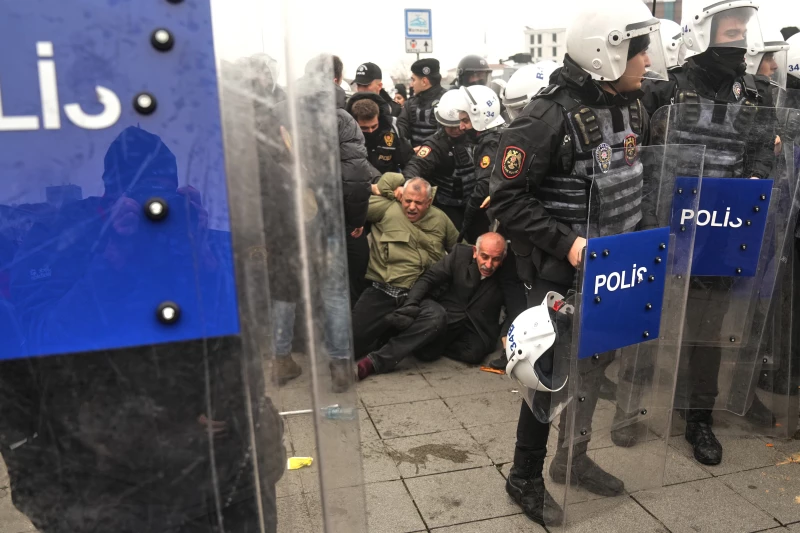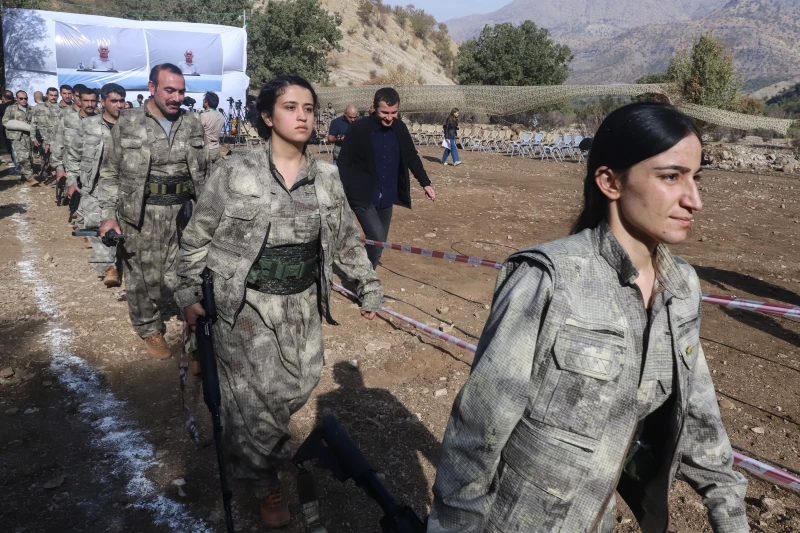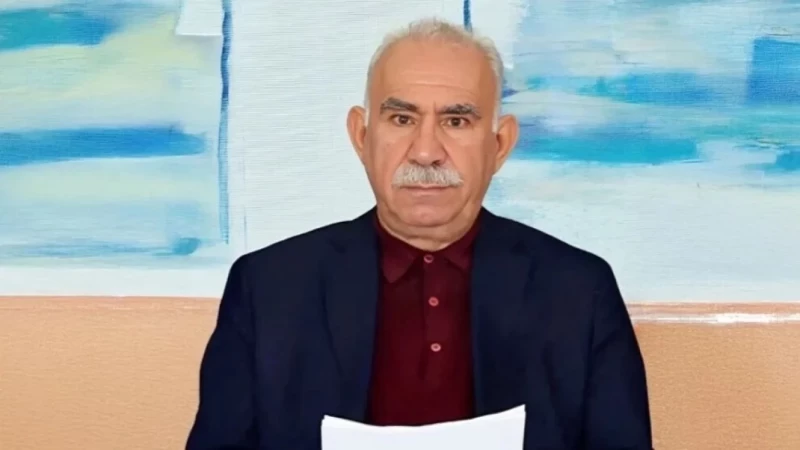ERBIL, Kurdistan Region of Iraq - Turkey's pro-Kurdish Peoples’ Equality and Democracy Party (DEM Party) on Friday highlighted four steps toward democratically solving the Kurdish issue in the country and establishing “permanent peace,” including the release of Abdullah Ocalan, the jailed leader of the Kurdistan Workers’ Party (PKK).
In a statement on Friday, DEM Party highlighted the outcomes of their Party Assembly, held in Ankara on Tuesday, during which party members made “comprehensive assessments” on several pressing matters in the country and the region overall, including “the democratic solution of the Kurdish issue” and “the democratization of Turkey.”
“The Kurdish issue in Turkey has been addressed for years within the framework of denial and annihilation and has been left unresolved with security policies… However, the solution lies not in policies of denial, annihilation, military operations and isolation, but in a democratic system where people can live together equally and freely,” read the statement from the DEM Party.
Within that framework, the party laid out four requirements toward a “democratic solution” of the Kurdish issue: Lifting the isolation imposed on Ocala and allowing free working conditions, guaranteeing the democratic and political rights of the Kurdish people constitutionally, granting all democratic rights to the different ethnicities and religious groups in Turkey as citizens with equal rights, and Ankara adopting “dialogue and peace policies instead of war in the Middle East.”
A DEM Party delegation was granted the rare permission to meet with Ocalan at Imrali prison twice in December and January, amid a shift in Ankara’s stance of prohibiting contact with the PKK founder. During the meetings, Ocalan had expressed willingness to take the necessary steps to find a permanent solution for the Kurdish issue and “make the call.”
In its Friday statement, DEM Party described the solution perspective proposed by Ocalan as “a historical opportunity for the democratization of Turkey and the establishment of permanent peace.”
“A comprehensive, pluralistic and participatory construction process that will pave the way for democratization in Turkey should be initiated.”
“Everyone living in Turkey has the right to build a common future together as citizens with equal rights… including education in their mother tongue and cultural rights, without any discrimination.”
“Diplomacy based on equal and peaceful relations with all peoples in the region should be developed, and relations with the peoples of the region, especially the Kurds, should be handled within the framework of democratic negotiations, not on the basis of war and destruction.”
In a major development, Devlet Bahceli, head of the far-right Turkish Nationalist Movement Party (MHP), in October proposed allowing Ocalan to appear before the legislature and declare the dissolution of the PKK, an initiative immediately endorsed by Turkish President Recep Tayyip Erdogan and the Turkish political landscape.
Ocalan has been serving a life sentence at Imrali prison, a small but high-security facility on Imrali Island in the Sea of Marmara, since February 1999.
The PKK is an armed group that has fought for increased Kurdish rights in Turkey for decades. The group is designated a terrorist organization by Ankara.
In 2013, the Turkish government, led by then-prime minister Erdogan, entered a peace process with the PKK aimed at ending the decades of conflict and bloodshed. The truce was short-lived and collapsed in July 2015, leading to violent clashes in Turkey’s southeastern Kurdish areas.



 Facebook
Facebook
 LinkedIn
LinkedIn
 Telegram
Telegram
 X
X


